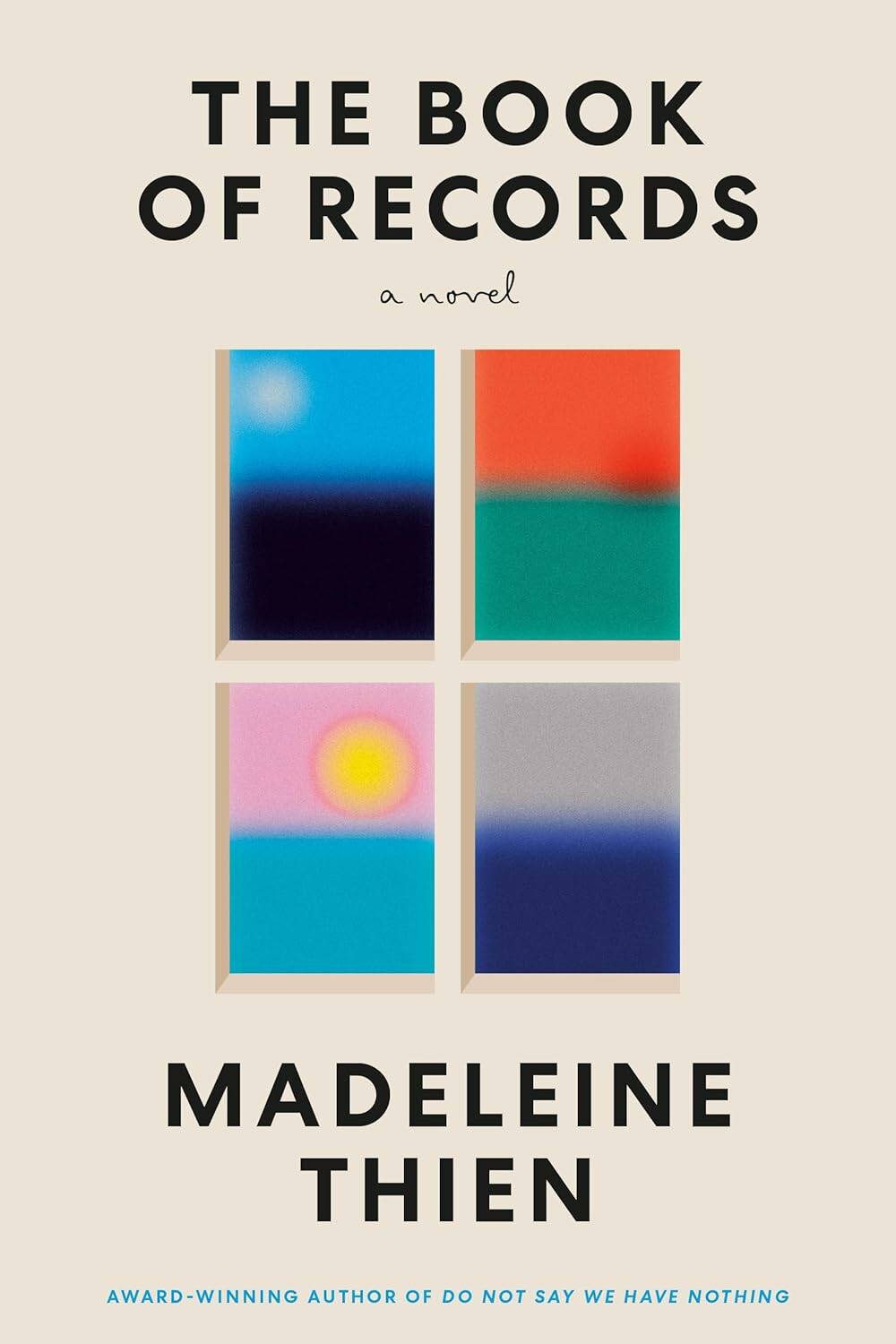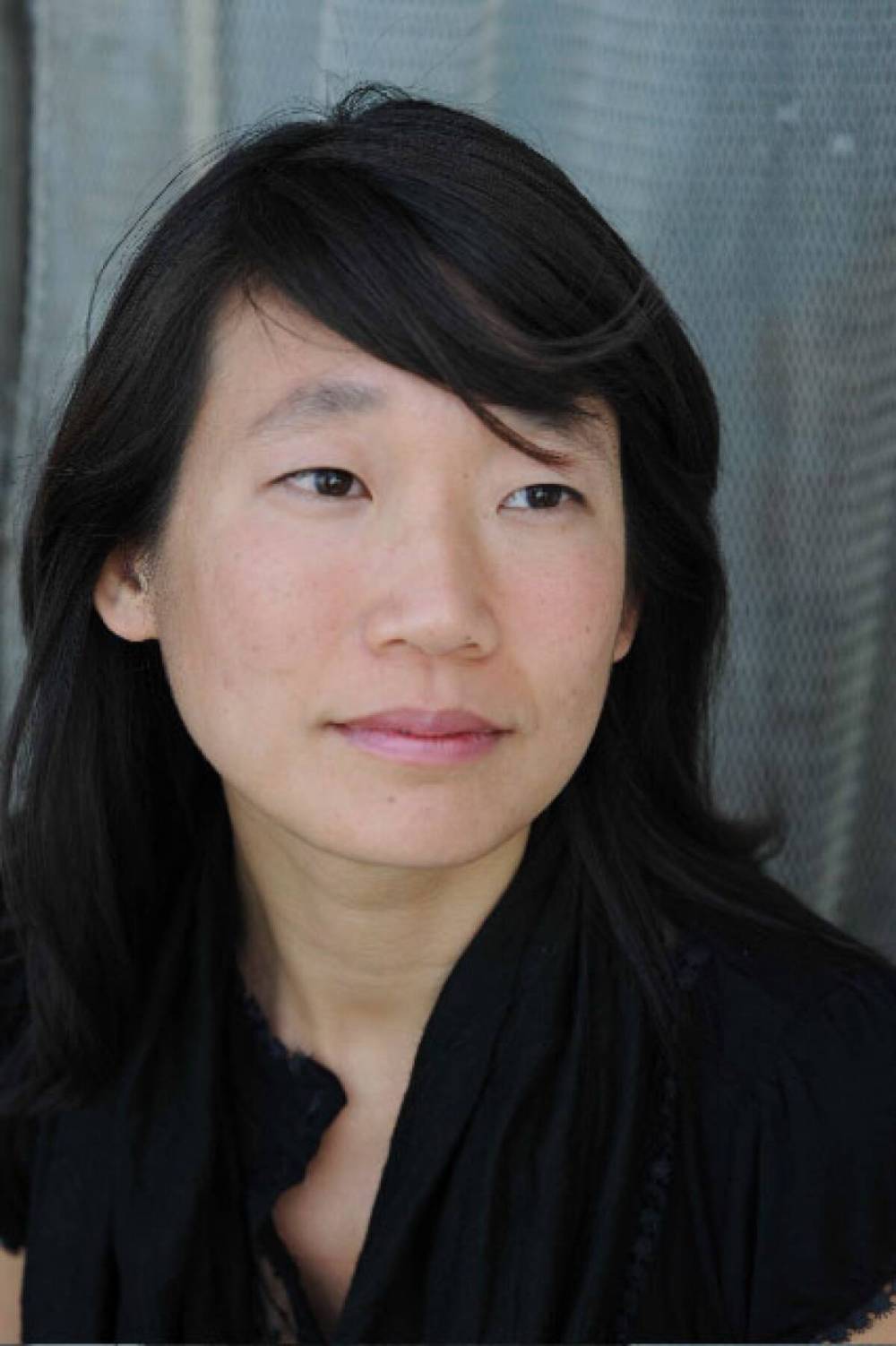Time out of mind
Thien’s bold, evocative new novel mulls migration, freedom, faith and more
Advertisement
Read this article for free:
or
Already have an account? Log in here »
To continue reading, please subscribe:
Monthly Digital Subscription
$1 per week for 24 weeks*
- Enjoy unlimited reading on winnipegfreepress.com
- Read the E-Edition, our digital replica newspaper
- Access News Break, our award-winning app
- Play interactive puzzles
*Billed as $4.00 plus GST every four weeks. After 24 weeks, price increases to the regular rate of $19.00 plus GST every four weeks. Offer available to new and qualified returning subscribers only. Cancel any time.
Monthly Digital Subscription
$4.75/week*
- Enjoy unlimited reading on winnipegfreepress.com
- Read the E-Edition, our digital replica newspaper
- Access News Break, our award-winning app
- Play interactive puzzles
*Billed as $19 plus GST every four weeks. Cancel any time.
To continue reading, please subscribe:
Add Free Press access to your Brandon Sun subscription for only an additional
$1 for the first 4 weeks*
*Your next subscription payment will increase by $1.00 and you will be charged $16.99 plus GST for four weeks. After four weeks, your payment will increase to $23.99 plus GST every four weeks.
Read unlimited articles for free today:
or
Already have an account? Log in here »
Set both in the future and in the past, Madeleine Thien’s The Book of Records is a novel for our time. It is beautifully written, brilliant in concept and frighteningly relevant to the current moment as the topics of totalitarianism, war, displacement, climate crisis, intellectual freedom and faith are dominating every headline.
Poetic, political and philosophical, the novel is the Canadian author’s latest arrives almost a decade after her Governor General’s Literary Award-winning novel Do Not Say We Have Nothing. Considering that recognition and the bevy of other literary nominations that earlier novel garnered, it is reasonable to expect this new book will receive even more deserved attention.
The Book of Records begins at The Sea, a futuristic enclave and labyrinth of secret doors, stairwells and passageways that serve as a temporary refuge for people on their way to other, presumably safer destinations than from where they have left. While most of the refugees who arrive at The Sea stay only for a few days, Lina— the novel’s central character and one of its narrators — and her reticent father Wui Shin remain there for years. They have fled their home of Forsham, China, leaving behind Lina’s mother, brother and aunt, and due to Wui’s inertia and illness have been unable to resume their journey.

The Book of Records
Having left home in a hurry, Lina and Wui were unable to bring more than a few possessions on their travels. The most cherished of these are three volumes of The Great Lives of Voyagers encyclopedia set — one about Tang Dynasty poet Du Fu, one about excommunicated philosopher Baruch Spinoza and one about 20th-century political theorist and writer Hannah Arendt.
Lina and Wui read these volumes about real-life “voyagers” voraciously and share them with their unusual neighbours, Jupiter, Bento and Blucher, who, in turn, regale Lina and Wui with ever more intimate tales from the famous historical figures’ lives. As they do so, Lina and Wui, and with them Thien’s readers, are transported back to eighth-century China, 17th-century Amsterdam and Nazi-occupied France.
It is the narration of these stories, each one of them with remarkable detail, that make up the most memorable and tender parts of this complex and innovative novel. As Blucher describes to Lina the love and affection Arendt had for her second husband Heinrich, he tells her, “Now she and Heinrich had become like two chairs whose existence made a room possible. He had shown her that four walls, a home in other words, was not anchored to a building or a place. It could be made of time. It could be made of something as intangible as a promise.”
Arendt’s story, like Fu and Spinoza’s life stories, could be a novel all its own. They are each so engrossing and so specific that it seems as though Thien is risking having readers forget about Lina and Wui and how it is them and their circumstances that tie all the separate narratives together.
Thien, of course, does not let that happen.
Eventually, she unveils Wui’s story in great detail, and that story both surprises his daughter by the betrayal at its core and sets her on a lifelong quest to find her lost family members, or at least learn of their fate.

Babak Salari photo
Madeleine Thien’s latest is her first novel since 2016’s award-winning Do Not Say We Have Nothing.
By the novel’s end Lina is in her fifties, and long removed from The Sea. Her life at that point is more rooted in what passes for normal — travel, houses and friends who are not stand-ins for tragic historical figures. Although she has blended into the background for much of the novel, its poignant and connected tales of loss, love and living remain hers to remember and hers to tell.
“We inherit stories never intended for us, sometimes to the surprise of those who left them behind,” Lina’s father once told her. “No matter. Let things fall to the one in need, who takes it upon herself to care for them.”
Sharon Chisvin is a Winnipeg writer, editor and oral historian.


